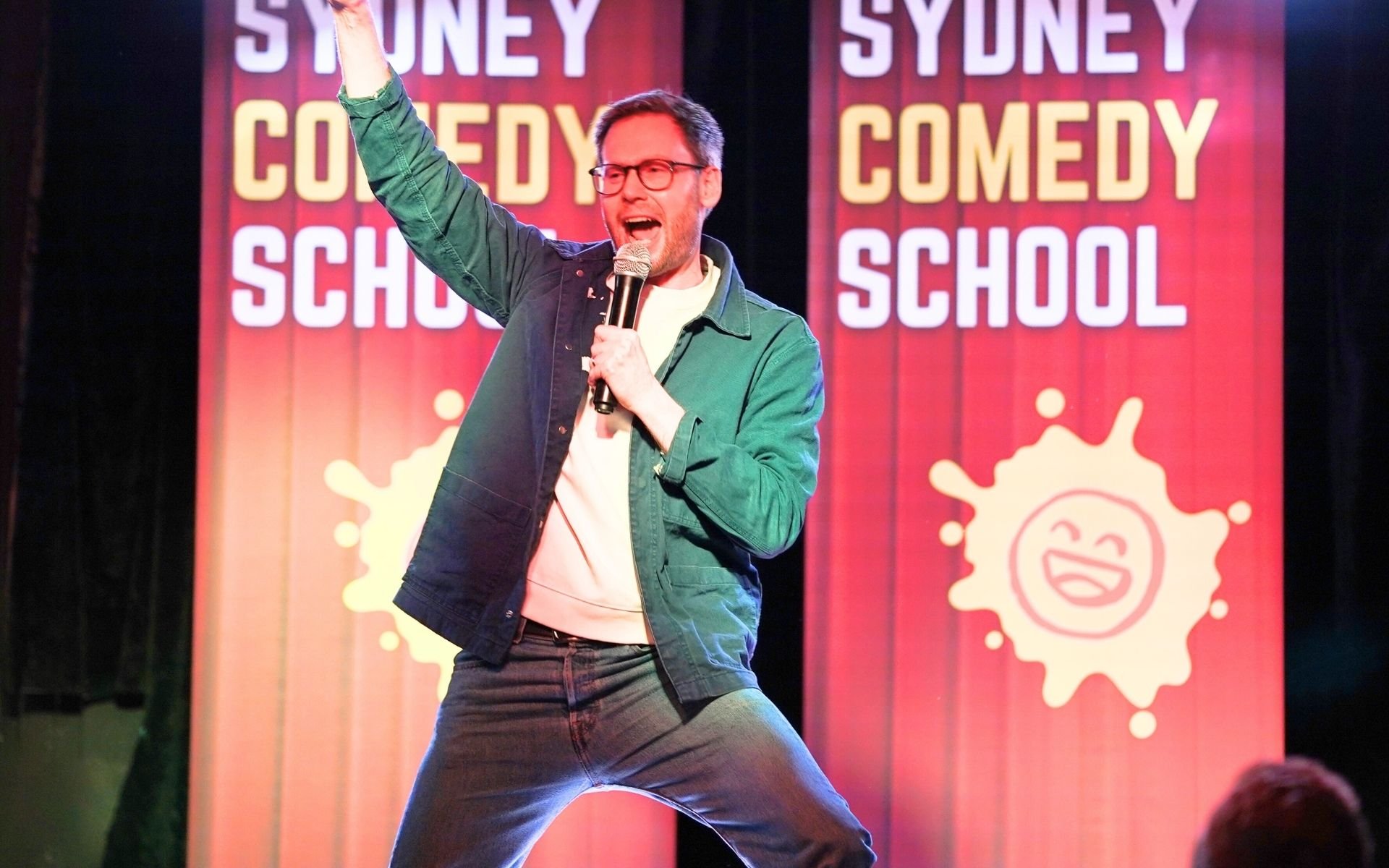Why Stand-Up Comedy is Good for Professional Development
The Sydney Stand-Up Comedy Grad Show
At first glance, stand-up comedy might seem like a niche skill for the brave souls who want to perform in front of crowds and generate laughter from an audience.
But at the Sydney Comedy School, it’s so much more than that.
I’ve been teaching stand-up comedy for years.
For me, it’s about learning to communicate powerfully.
I’ve had team leaders, educators, government workers, sales people, executives, and so many more in our courses.
They’ve been able to grow in confidence and transform how they express themselves.
Every year, I train hundreds of people.
They grow as speakers and thinkers, plus they improve their stagecraft and enhance their charisma.
Comedy forces clarity, empathy, and confidence.
It’s the best – and potentially most honest – form of communication training that you’ll ever do.
From the Stage to the Workplace
I run multiple courses, including how to craft, edit, and deliver your own humour, which can then be used to win over a crowd and generate rapport.
“Comedy makes you think very deeply about your words, phrasing, and even how you sequence thoughts.
It will help you to be succinct. Powerful. You’ll command the attention of your audience. Deepen how engaging you are.
And these are the skills that make people great communicators in any setting.
Comedy is often about being honest with ourselves and how we come across to others.
And this means that when we write material, we are often writing about our own experiences, our profession, values, and perspectives on life.
This focus on ourselves translates directly to the workplace.
Participants in our courses are better able to connect with audiences, and this translates into stronger public speaking, workplace presentations, and everyday conversations.
By the end of each course, participants are speaking a whole new level of confidence.
They’re sharper, funnier, and more self-aware. It’s a joy to see.
Understanding Your Audience
One of the biggest shifts students experience is learning to view the world through their audience’s eyes.
Comedy forces you to see topics from the perspective of others.
It’s not enough for you to find something funny — you have to make them find it funny. That skill of audience awareness is gold.
This insight into the thinking of others will make you a better communicator, colleague and listener
Through this process, students naturally learn how to build rapport.
A well-timed laugh breaks down barriers, opens conversations, and creates connection.
In my career in politics, diplomacy and as an executive, I saw how humour can be one of the most powerful tools for building trust.
When you can make people laugh, you can make people listen.
And most importantly, you increase your influence.

